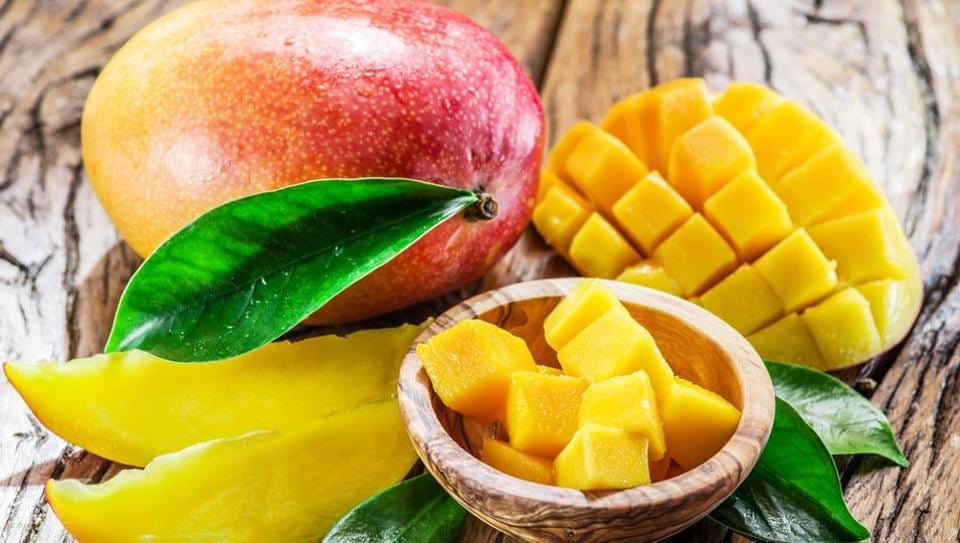Mangoes Boost Immunity and Offer a Wide Range of Health Benefits
You can get plenty of health benefits from mangoes. They’re rich in beta-carotene, Vitamin C, and potassium, all of which help protect you from disease. Read on to learn more about the many health benefits of mangoes. You’ll be glad you did. And you might want to try mango juice for its digestive benefits. Mangoes are good for you in many other ways, too.
Carotenoids in mangoes
Mangoes are rich in Vitamin A, riboflavin, niacin, magnesium, manganese, and phosphorus. They are also a good source of fiber, and contain three grams of this essential nutrient – about 10 percent of your daily value. Moreover, they contain several phytochemicals, including beta-carotene, which boosts immunity and protects the body from disease.
The presence of antioxidants in mangoes lowers the oxidative stress in the body. They prevent the development of various chronic diseases such as heart disease and cancer. Additionally, they play an important role in the development of fetal tissue and sperm. Consuming mangoes regularly can reduce the risk of developing chronic diseases like cancer, diabetes, and obesity. They also reduce the risk of heart disease and diabetes. か まぐ ら 100 通販 boosts the immune system and keeps you health and prevents infection.
Vitamin C
Mangoes are loaded with anti-oxidants. Free radicals are unstable molecules that attach to our cells and cause damage. Free radicals can cause premature aging and even cancer. Mangoes have several antioxidants in high concentration, including vitamin C. Free radicals damage our cells, so the antioxidants found in mangoes can neutralize them and prevent damage.
In addition to providing a high amount of vitamin C, mangoes are packed with other essential vitamins and minerals. Vitamin C helps the body produce white blood cells and strengthens bones. Other important vitamins found in mangos include folate, vitamin K, and vitamin E. Mangoes also contain magnesium, potassium, and B vitamins. Magnesium and potassium relax blood vessels, lowering blood pressure and cholesterol levels. These nutrients promote a health heart.
Beta-carotene
Mangoes contain two kinds of carotenoids, lutein and zeaxanthin. Both have important roles in the human body and have been shown to boost immunity and vision. In addition, lutein and cryptoxanthin can protect against age-related macular degeneration. This antioxidant-rich fruit also contains iron and folate, which are important for the health of the reproductive organs.
The phytochemicals in mangoes have anti-inflammatory properties in some chronic pathological conditions. Among these are inflammatory bowel diseases, which cause chronic inflammation in the large intestine and are linked to an increased risk of rectal and colon cancer. In patients with inflammatory bowel disease, the mucosa produces high levels of cytokines, which promote inflammation.
Potassium
Research has shown that the phytochemicals in mangoes have anti-inflammatory effects against several chronic pathological conditions. These include ulcerative colitis, inflammatory bowel disease, and rectal and colon cancer. Inflammatory bowel disease patients are prone to the development of cancer, especially colon and rectal cancers, because their mucosa produces a high amount of pro-inflammatory cytokines, which induce the expression of enzymes associated with inflammation.
Eating mangoes regularly has many benefits. It improves cardiovascular health, lowers blood pressure, and supports gut health. They contain polyphenols, which help lower cholesterol and reduce the risk of heart disease. Mangoes are also high in fiber, and can provide 10 percent of the daily recommended amount. Mangoes can help with heart disease and blood sugar control.
Iron
Mangoes are an ideal fruit for boosting immunity. They provide significant amounts of vitamin C, which strengthens the immune system, as well as helps the body absorb iron. The vitamin C found in mangoes also promotes cell growth. Mangoes also contain folate and copper, which are important minerals during pregnancy. Both help support the growth of the fetus and protect against anaemia.
In addition to boosting immunity, mangoes contain phytochemicals that fight inflammation in a wide range of disease states. Inflammatory bowel disease, for example, is associated with an increased risk of colon and rectal cancer. The mango’s exocarp contains a high concentration of phytochemicals, including an oily organic allergen called urushiol. Mangoes may also help prevent cancer by reducing the level of harmful substances that can harm the body.
Diabetes
The anti-inflammatory effect of mango phytochemicals in various pathological conditions is also beneficial in preventing diabetes. Mangoes are rich in carotenoids, vitamin C and dietary fiber. However, since mangoes are high in natural sugars, they should be eaten in moderation. They are best paired with foods rich in fiber and protein to avoid spikes in blood sugar levels.
The sweet taste of mango is an added benefit. Studies have shown that it helps regulate blood sugar levels and may even prevent diabetes. In addition, mangoes are rich in antioxidants, which can help prevent and delay cell damage. They are also an excellent source of fibre, which helps to maintain health cholesterol levels. Whether or not mangoes are good for diabetics depends on individual circumstances, but if you have a history of diabetes, mangoes are a great snack to include in your diet.
The bioactive compound mangiferin in mango is thought to protect against several types of human cancers. Vitamin A, in particular, has been shown to prevent skin cancer. Mangoes also contain a high concentration of polyphenols, which act as antioxidants and protect cells from free radicals. One of these polyphenols, mangiferin, has also been linked to diabetes and cancer.


